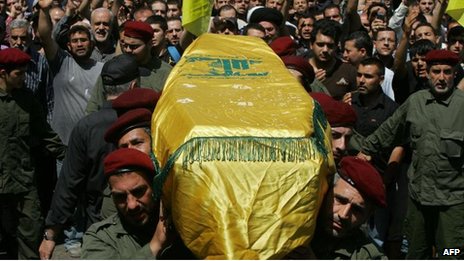How does it play out for Hezbollah?
Kelly McEvers did this piece on Monday for NPR, in which she asked me about Hezbollah’s long-term chances here. The World followed up with questions about how Hezbollah’s involvement affects the risk of a regional war. There’s a lot of talk in Lebanon about whether Hezbollah’s all-in gambit on Syria will hurt the Party of God long-term. One side holds that killing fellow Arab Islamists rather than Israelis will prove a harder sell to the constituency over the long haul, while the polarizing sectarian fight will make Hezbollah more insecure, and therefore weaker and less predictable, once the regime in Syria falls or conclusively loses control of half the country. The other side sees a Hezbollah constituency fully on board for the fight in Syria, a constituency that understands the Takfiri Sunni fundamentalists to be a major threat not only to Hezbollah and the Shia but to the flawed model of mutual if grudging toleration under which Hezbollah, Assad and many other groups, including minorities and many Sunnis, have thrived.
I’m leaning toward the second interpretation. Sure, there’s a danger of wider war, and sure, there’s now a slightly greater possibility that it all backfires for Hezbollah. On the other hand, consider that the group has continued an uninterrupted expansion of power and intense popular support from its loyalists through the war of the camps in the 1980s, when Hezbollah battled its fellow Lebanese Shia Amal Movement; the hyperbolic years of Sobhi Tufayli’s leadership; its entry into politics; the expulsion of Israel from South Lebanon and thereby the removal of one key factor motivating Hezbollah’s support; the withdrawal of its patron, Syria, from Lebanon in 2005; the 2006 war with Israel; and the May 2008 battle with March 14. So let’s consider that Hezbollah has unchallenged dominion internally in Lebanon (it can’t rule alone, but no one can contest its hegemony either), and that it more or less alone writes the rules — so it might well emerge from this gambit in Syria still in control of Lebanon. The contours of its role would change, especially if the Assad regime falls, or Syria is de facto partitioned. But Hezbollah is unlikely to find itself disarmed, or dislodged from the center of Lebanese power, or bereft of supporters.


